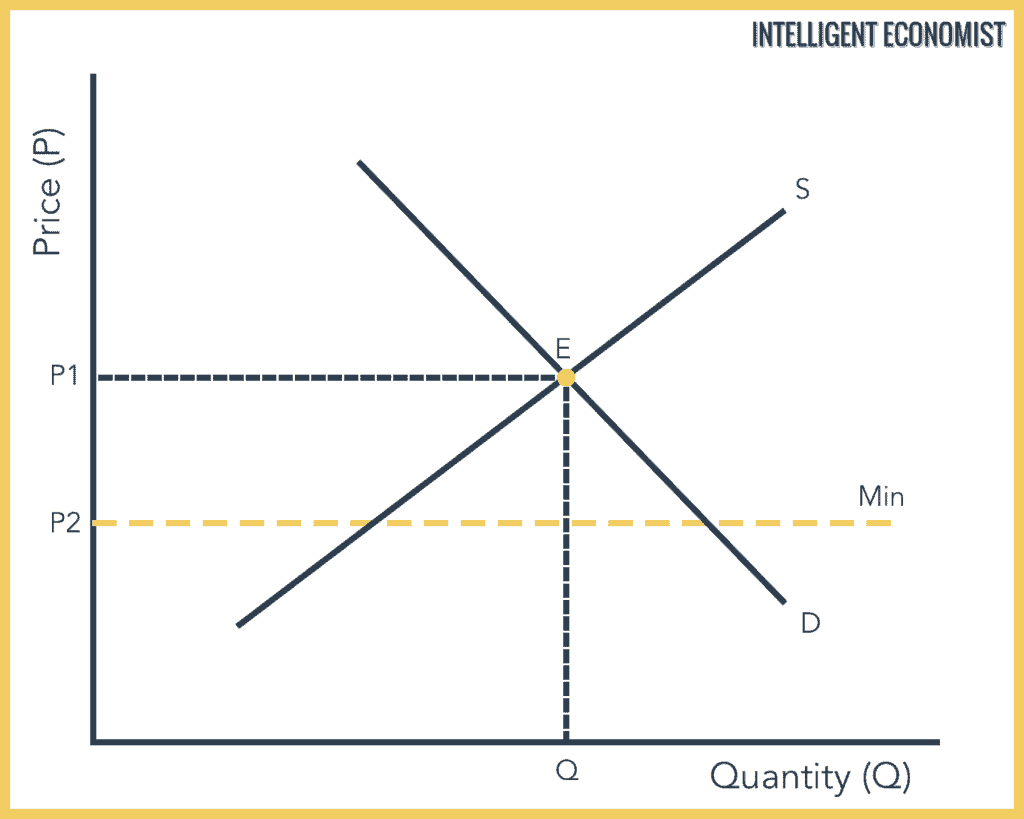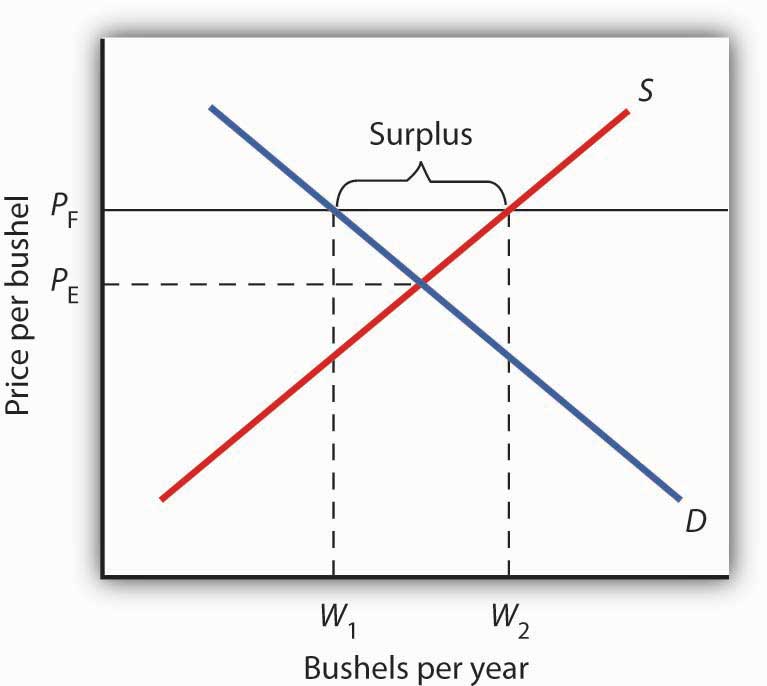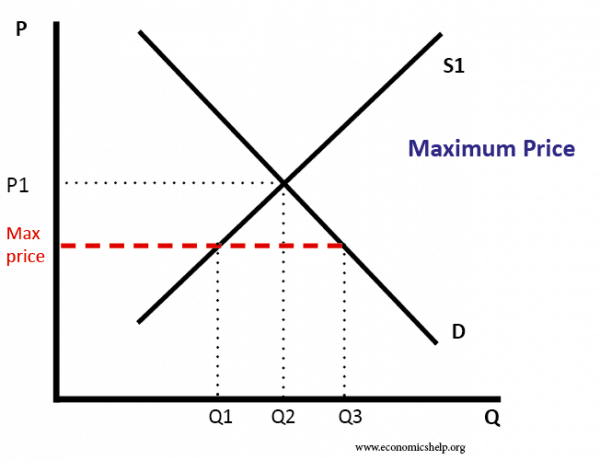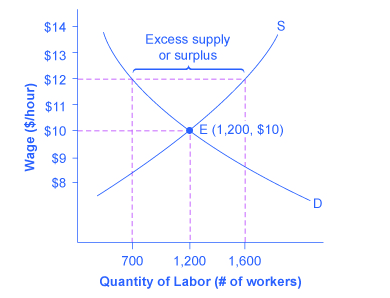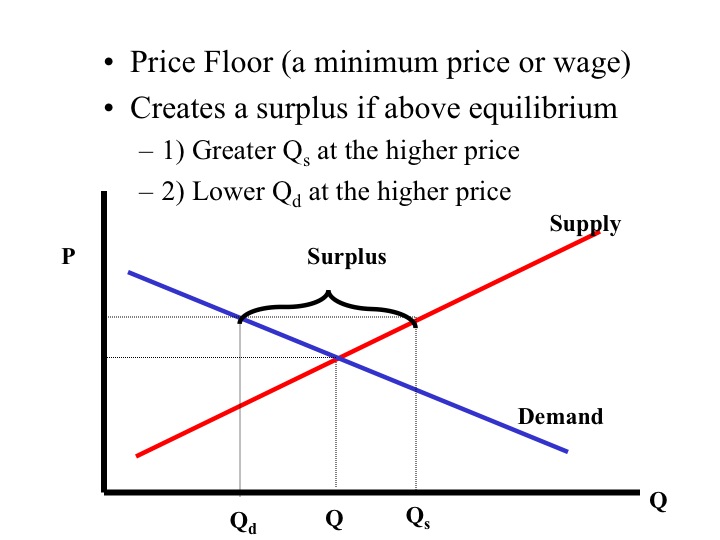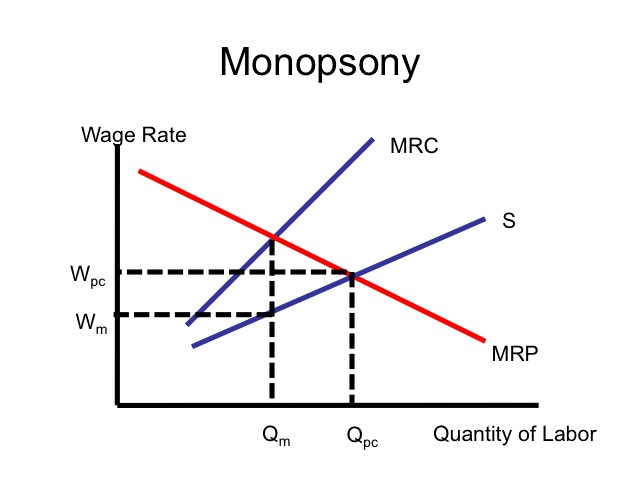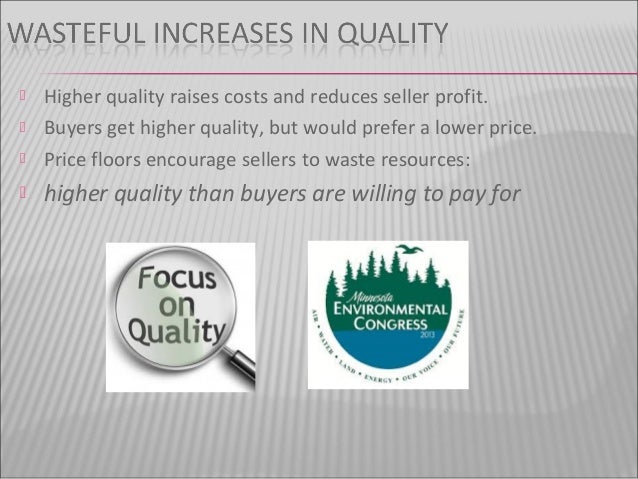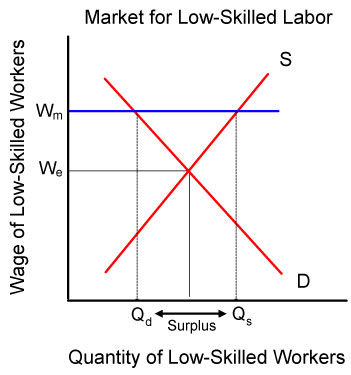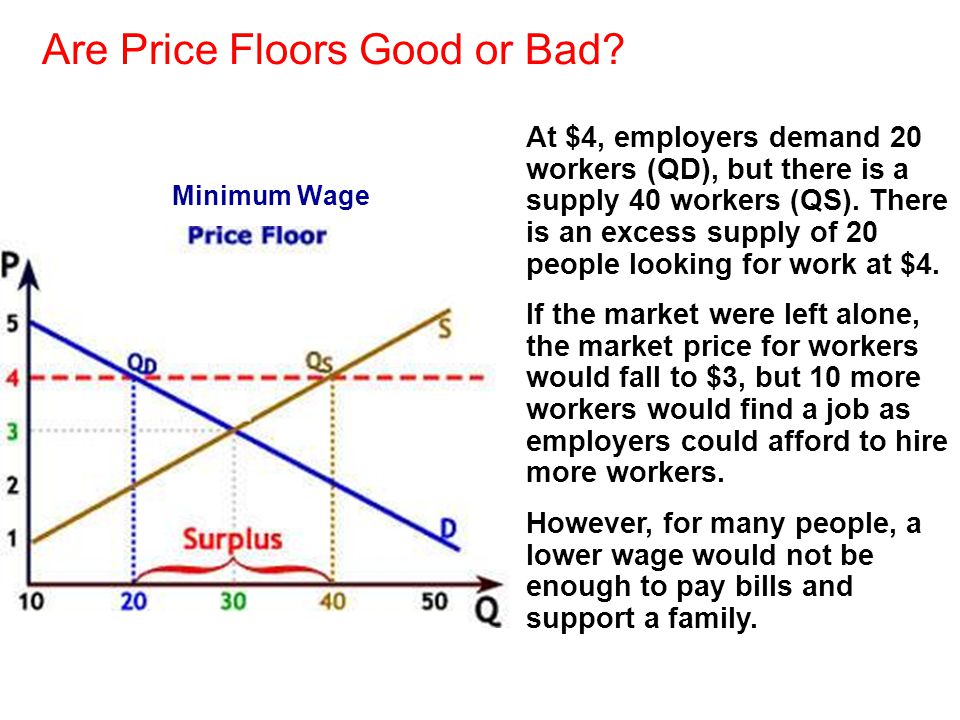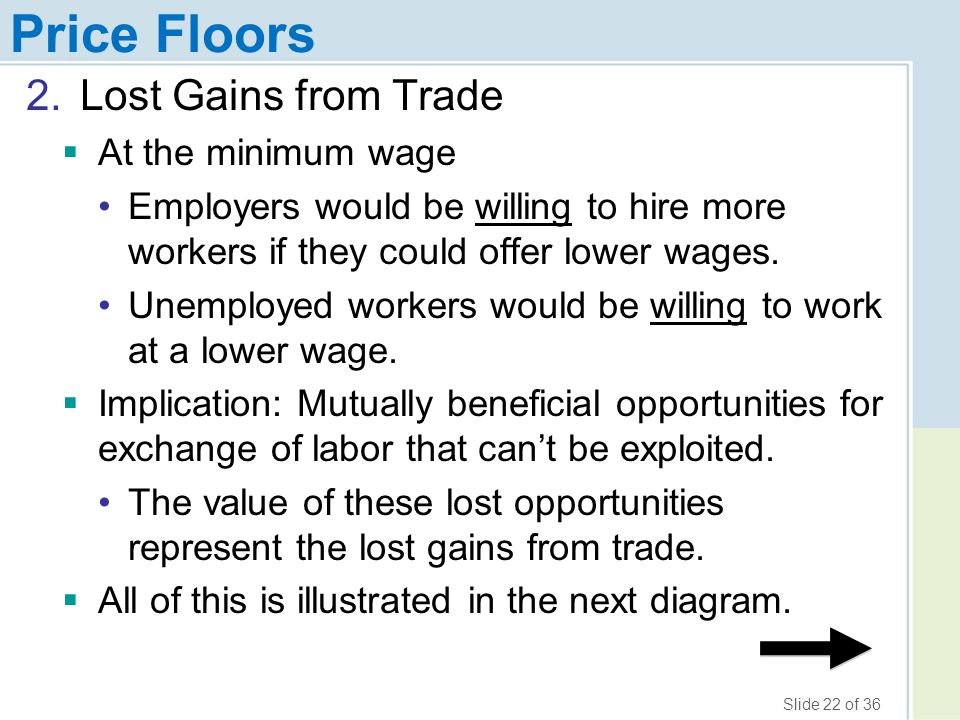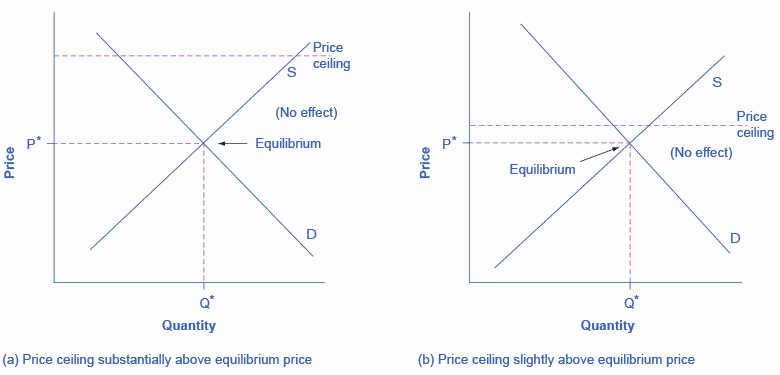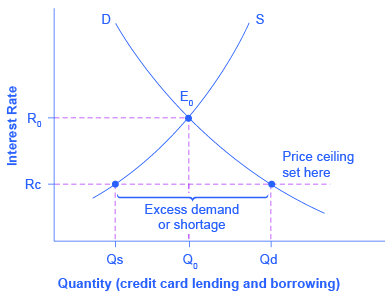Does Price Floor Encourage Lower Wages

A price floor is the lowest legal price a commodity can be sold at.
Does price floor encourage lower wages. A deadweight loss. A price floor is a legal minimum in which the government does not allow the price of a good or service to fall below the floor buyers caught paying less than the floor price face fines or other forms of punishment. In the end even with good intentions a price floor can hurt society more than it helps. A price floor must be higher than the equilibrium price in order to be effective.
Unfortunately it like any price floor creates a surplus. The price floors are established through minimum wage laws which set a lower limit for wages. Legislating a minimum wage is commonly seen as an effective way of giving raises to low wage workers. It may help farmers or the few workers that get to work for minimum wage but it does not always help everyone else.
The most common price floor is the minimum wage the minimum price that can be payed for labor. The equilibrium price commonly called the market price is the price where economic forces such as supply and demand are balanced and in the absence of external. Price floors are also used often in agriculture to try to protect farmers. A good example of how price floors can harm the very people who are supposed to be helped by undermining economic cooperation is the minimum wage.
If the market was efficient prior to the introduction of a price floor price floors can cause a deadweight welfare loss.
